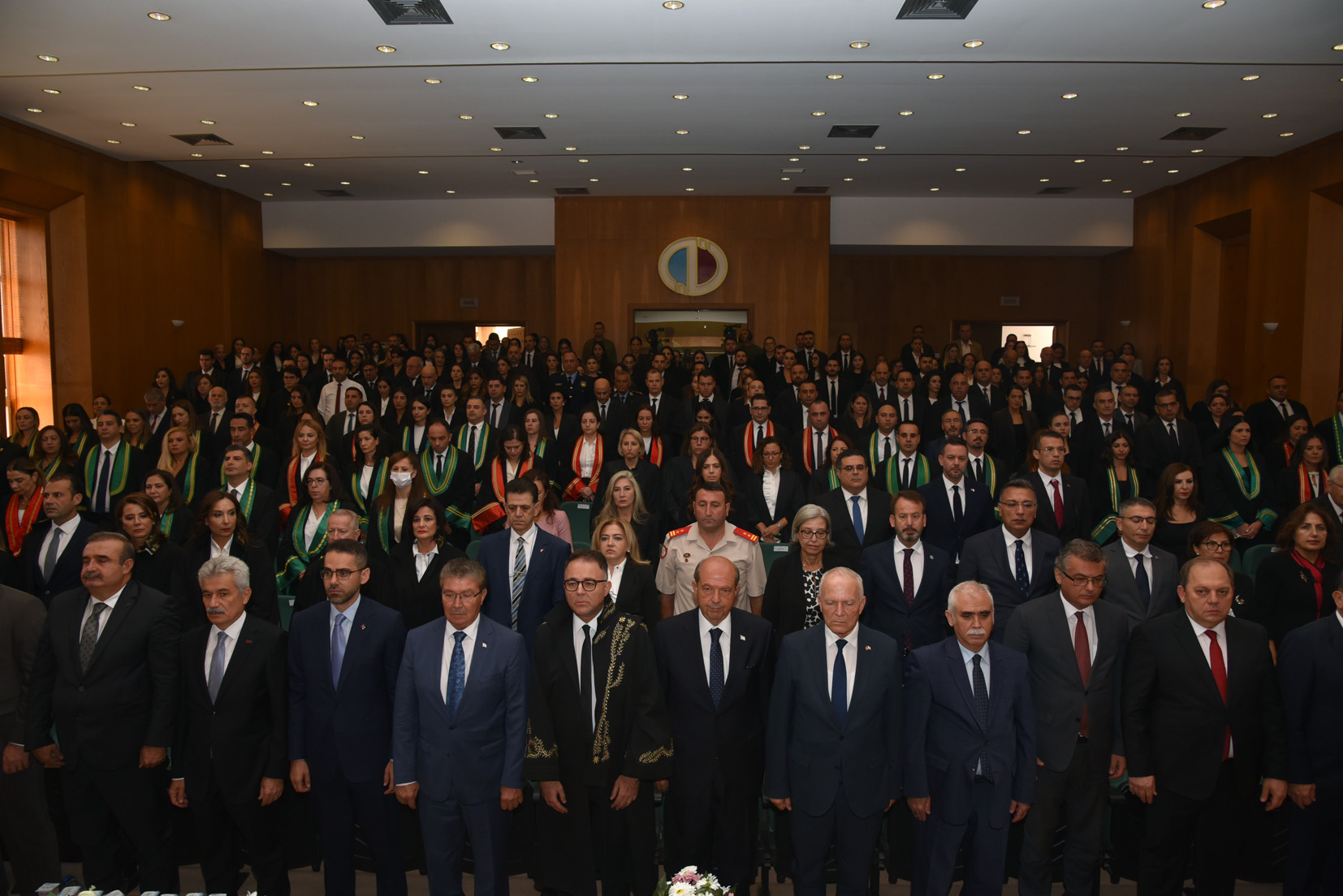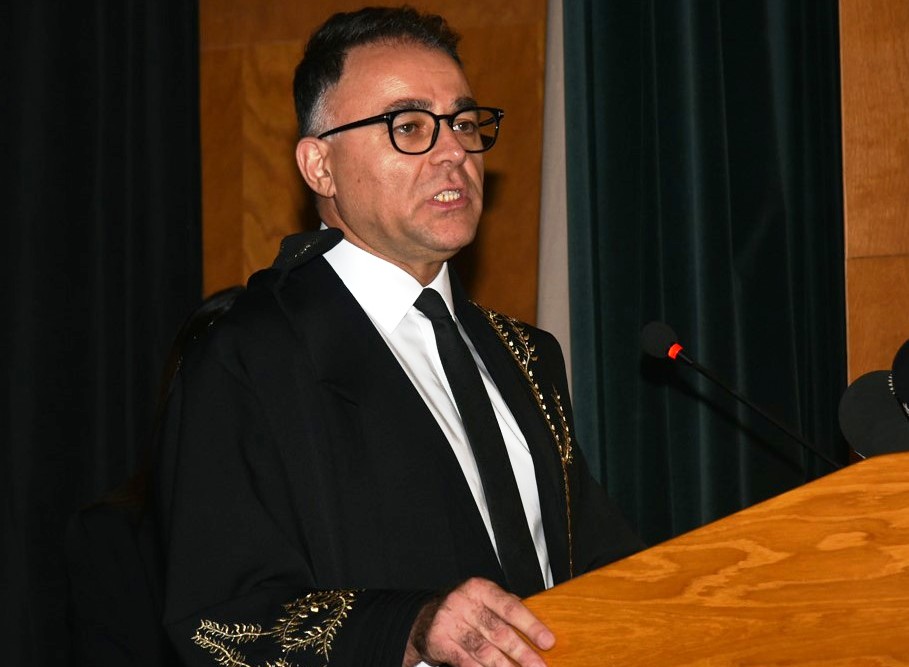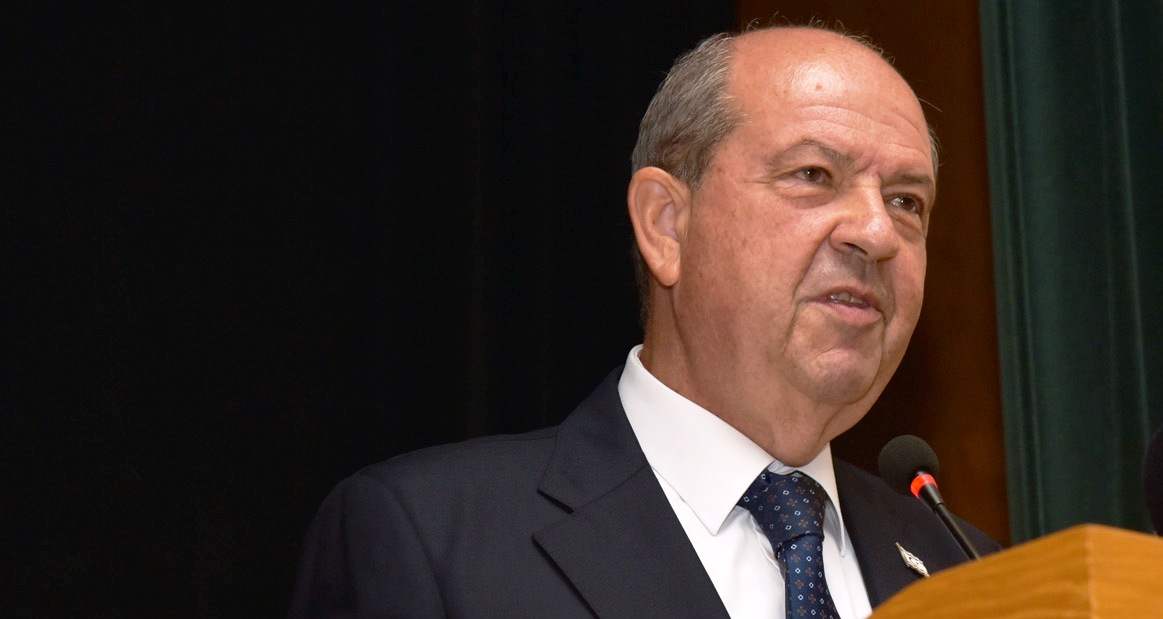
The 2024-2025 judicial year officially began on Monday with a ceremony held at the Anadolu University’s Faculty of Open Education located in Lefkoşa.
Speaking at the event, the head of the Supreme Court, Chief Justice Bertan Özerdağ highlighted the critical role of judicial independence in safeguarding democracy.
Addressing key legal and political issues, including freedom of expression, property disputes, and the need for swift justice, Özerdağ emphasized the importance of upholding the rule of law for the continued development of the Turkish Republic of Northern Cyprus.
The event, which took place on Monday morning, marked the start of the new legal year and featured speeches from key judicial and political figures.

Chief Justice of the Supreme Court, Bertan Özerdağ, in his opening speech, emphasized the importance of judicial independence by pointing to the principle of separation of powers. He stated that judicial independence is essential for strengthening democracies and highlighted the need to respect judicial rulings to uphold the rule of law and the legal state.
Özerdağ also addressed the significance of freedom of expression and the press, calling it a fundamental element for the Turkish Cypriot people, which must continue to be upheld.
He mentioned that the Turkish Cypriot community is not responsible for the political problems in Cyprus but rather a victim of them.
Touching on the property issue in Cyprus, Özerdağ noted that the European Court of Human Rights has recognized it as part of the broader Cyprus problem.
He stressed the importance of resolving property claims through friendly solutions and affirmed that the Immovable Property Commission and TRNC courts serve as effective domestic legal remedies.
He also underscored the need for swift justice, noting that technology plays a key role in ensuring timely and cost-effective judicial processes.

In his speech, President Ersin Tatar emphasized that the TRNC operates as a state governed by the rule of law.
He highlighted the importance of international support from Türkiye and Azerbaijan in upholding the rights and sovereignty of the Turkish Cypriot people.
Tatar also underscored the significance of the Immovable Property Commission, reaffirming that its decisions comply with both international law and the European Court of Human Rights.
Tatar stressed that the Immovable Property Commission provides an effective legal avenue for resolving property disputes, as recognized by the European Court of Human Rights.
He noted the need for timely resolution of cases and the importance of creating the necessary resources to ensure the swift implementation of decisions.
Tatar also emphasized the importance of concluding property-related cases brought to the High Administrative Court within a reasonable timeframe, expressing full confidence in the judiciary’s ability to fulfill this critical role.
Addressing broader political issues, Tatar reiterated the need for mutual recognition of sovereignty between the Turkish and Greek Cypriot sides for any lasting solution.
He criticized the international community’s failure to acknowledge Turkish Cypriot sovereignty, which he said was the root cause of unsuccessful negotiations.
Tatar also touched on the importance of reducing the court’s workload, increasing judicial appointments, and the construction of a new courthouse near the Presidential complex.